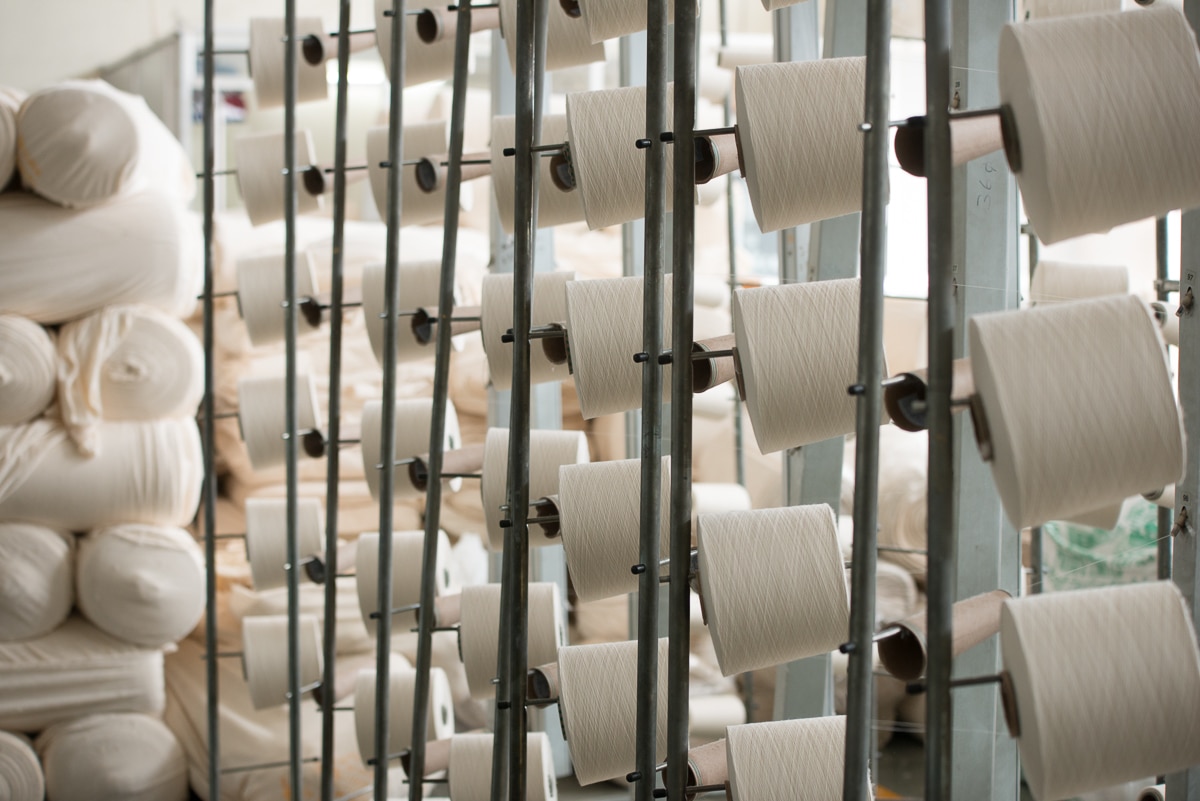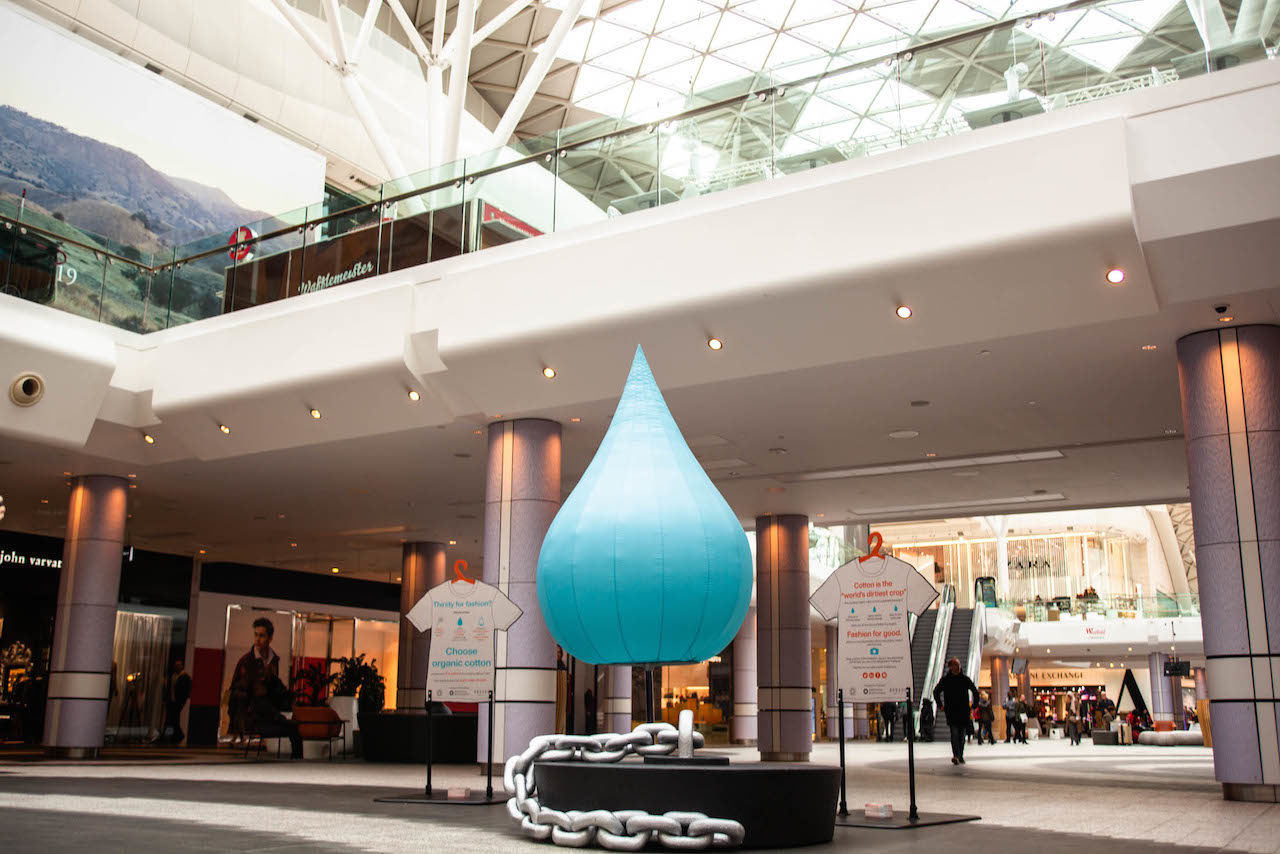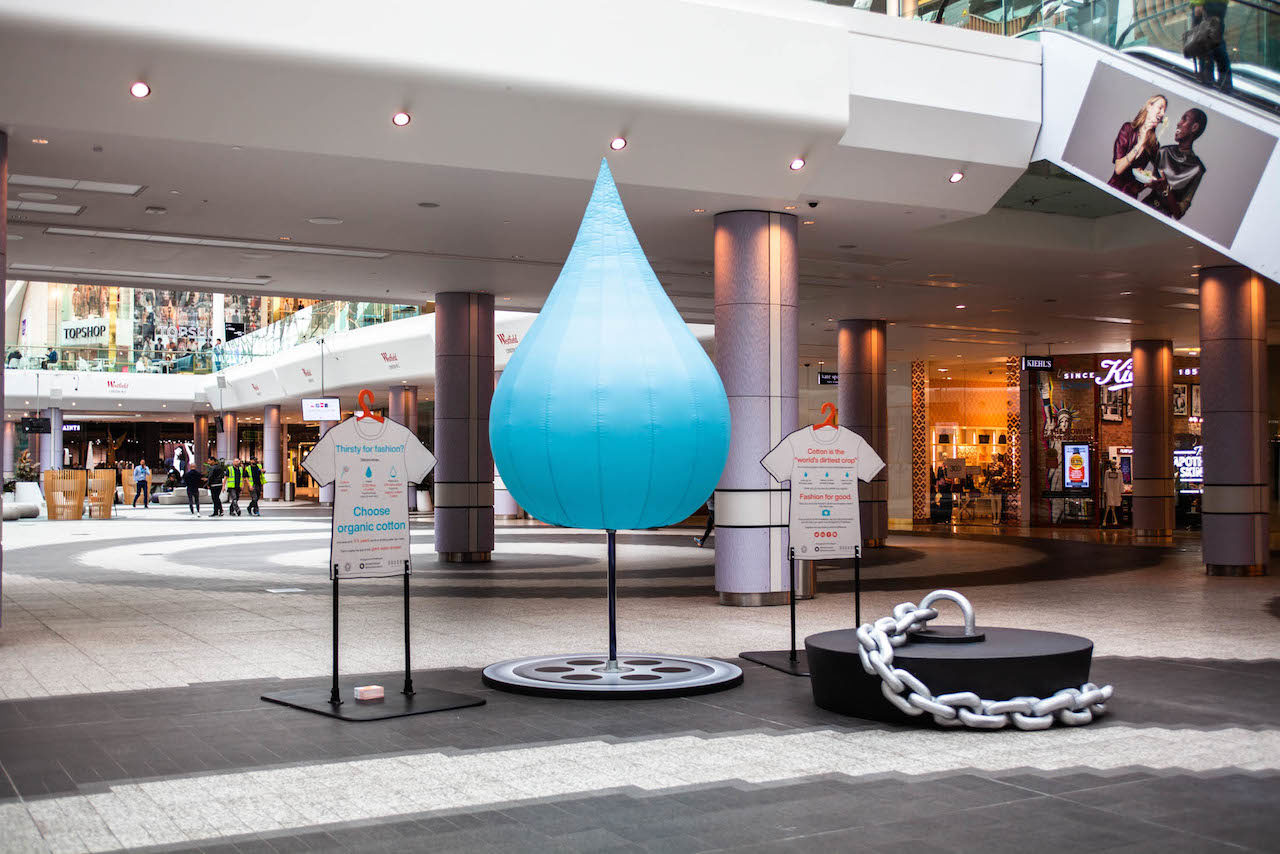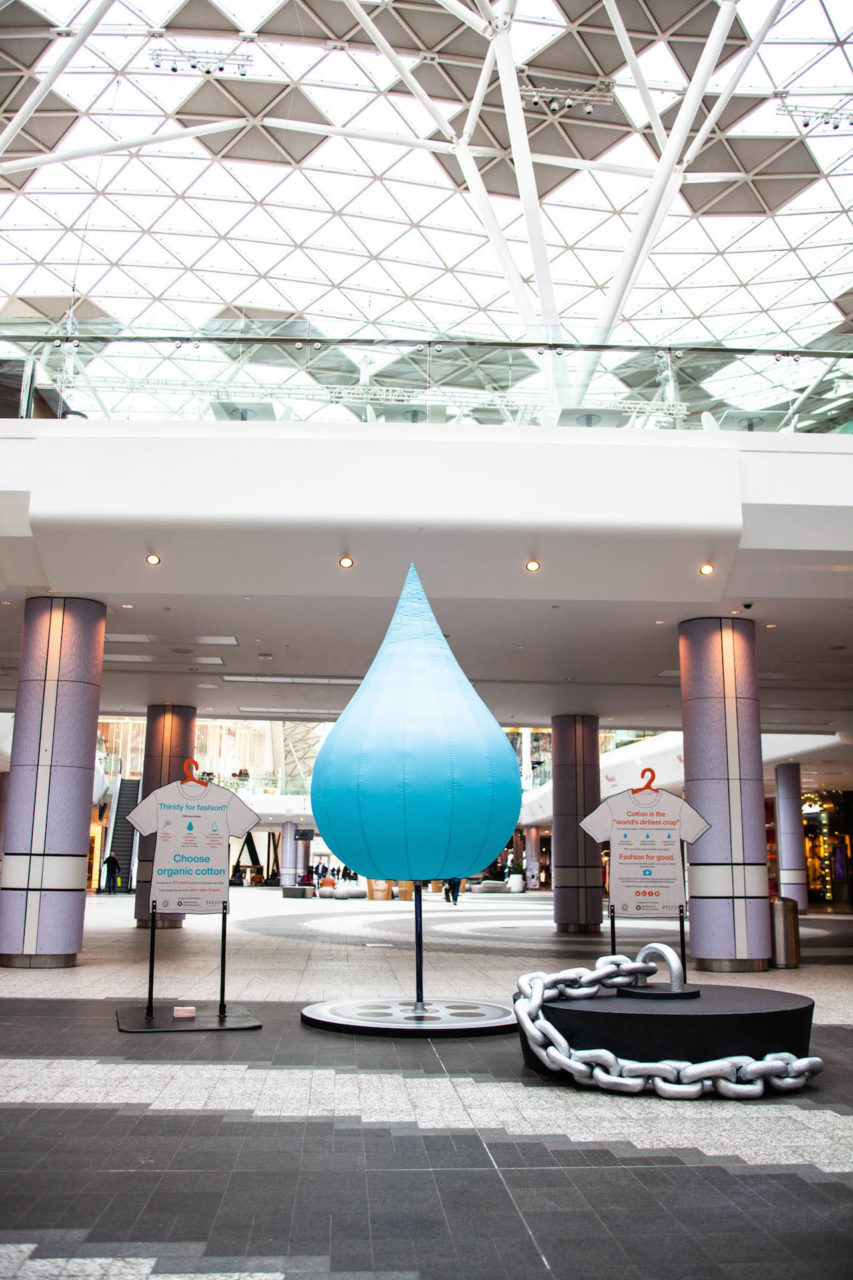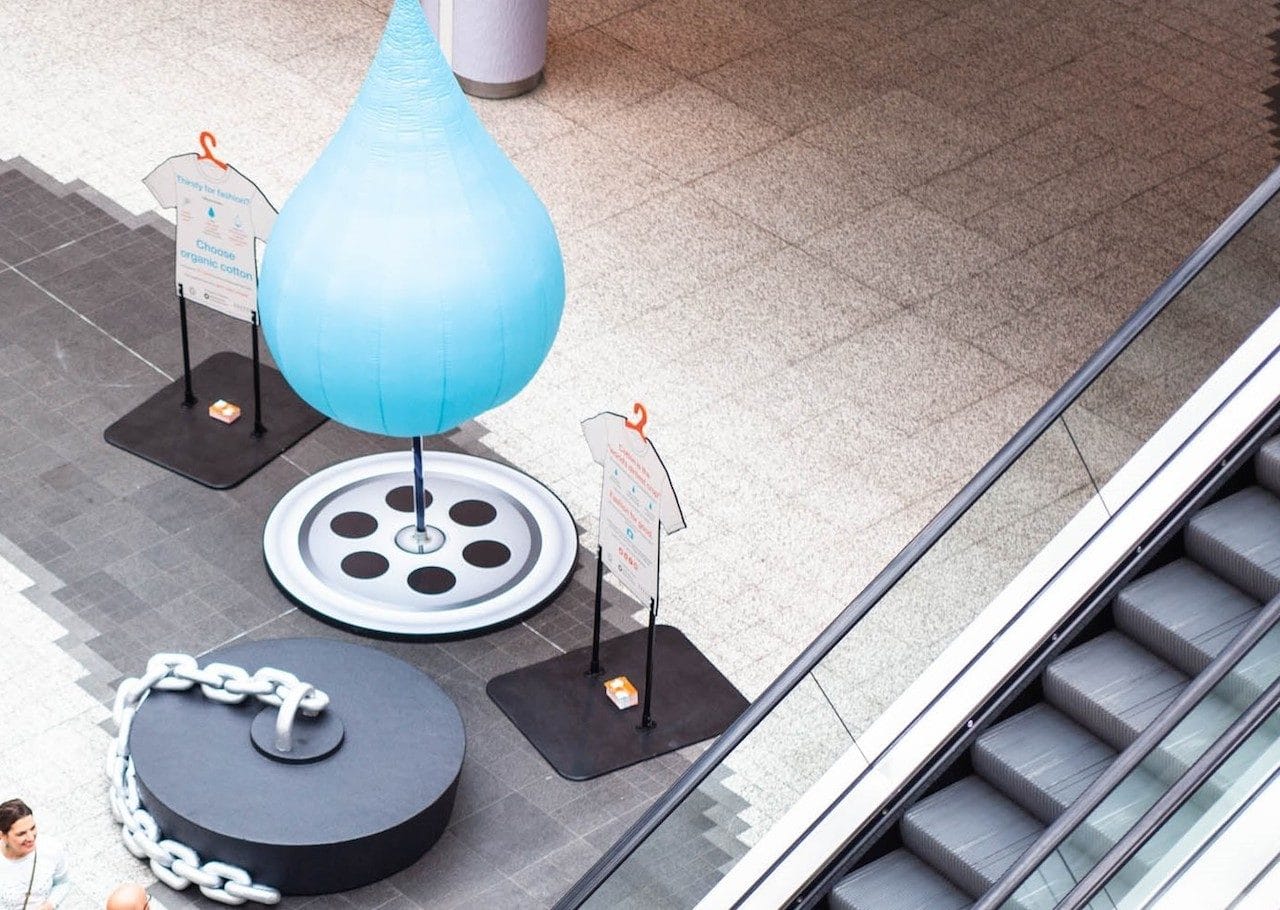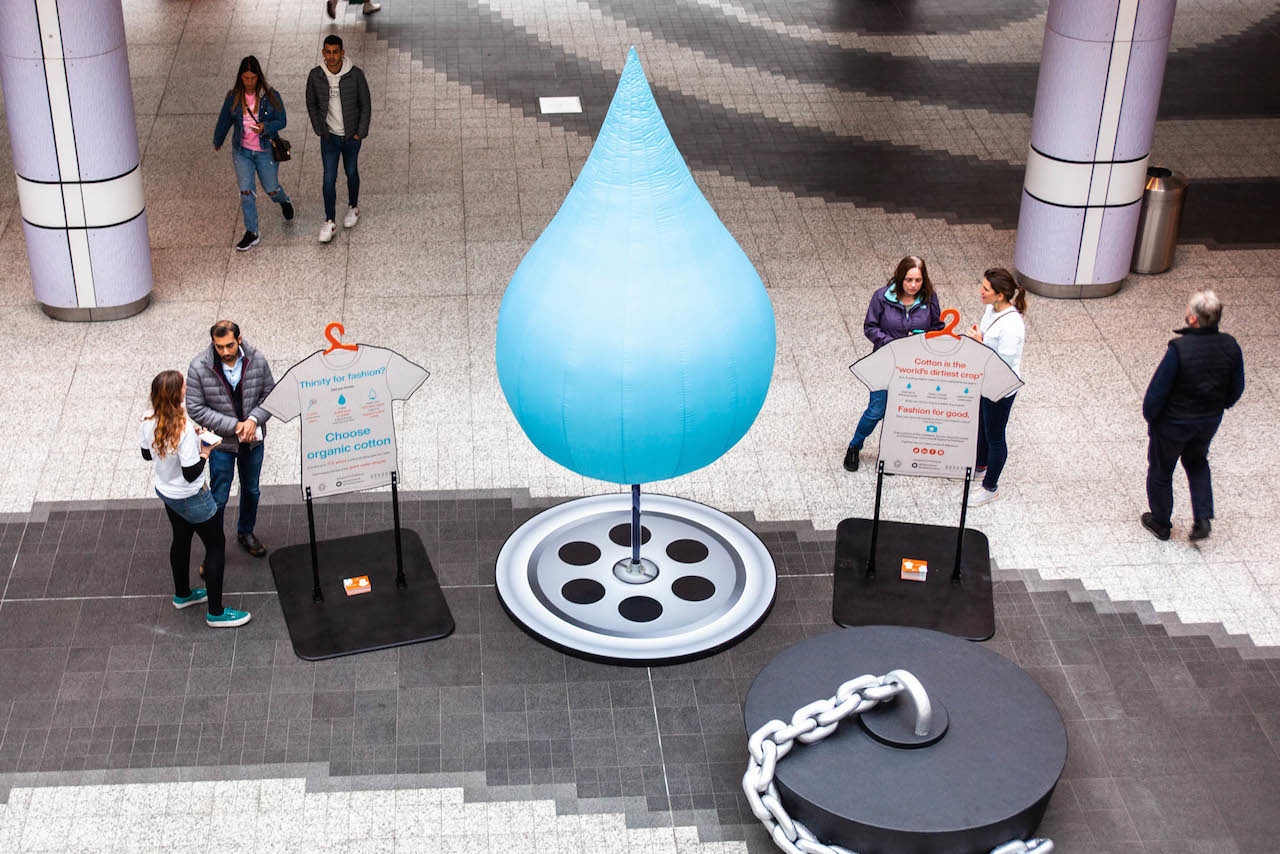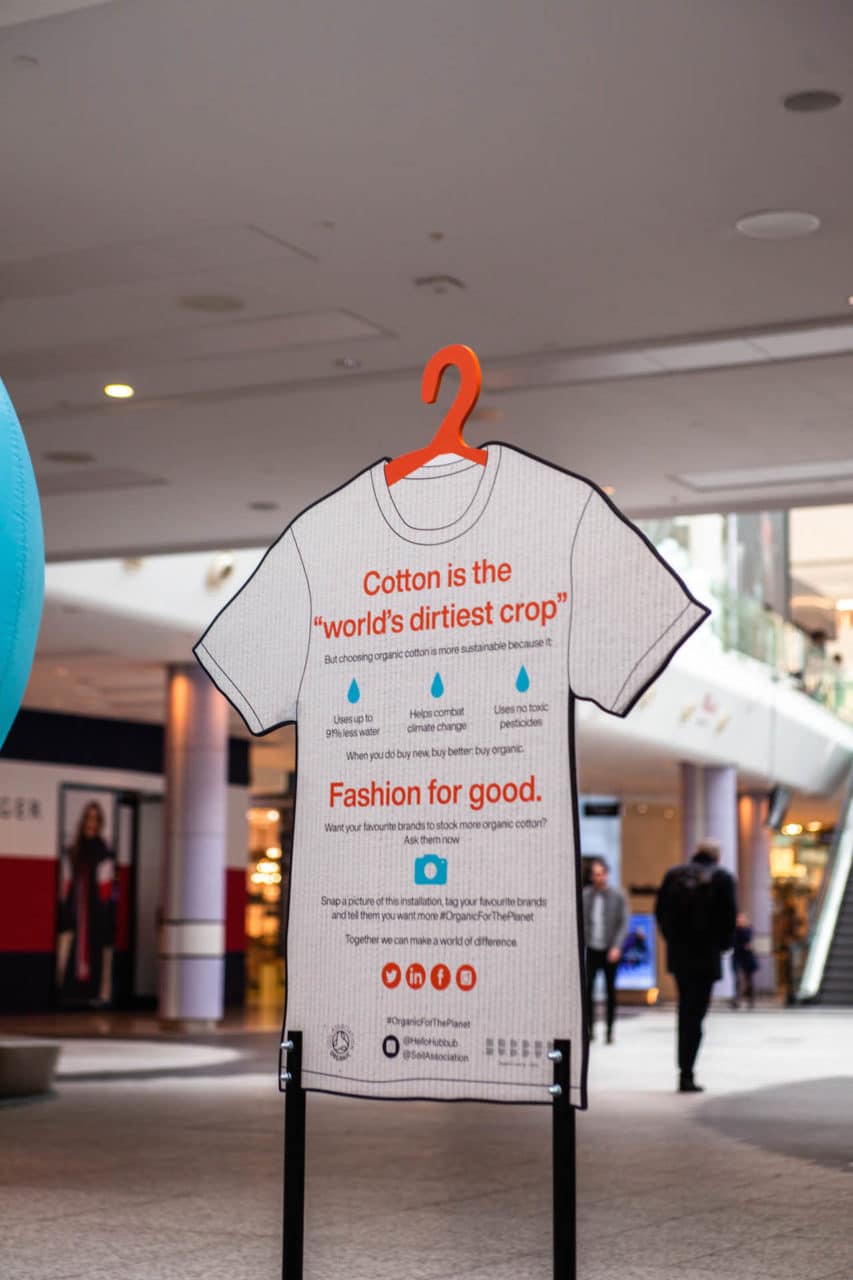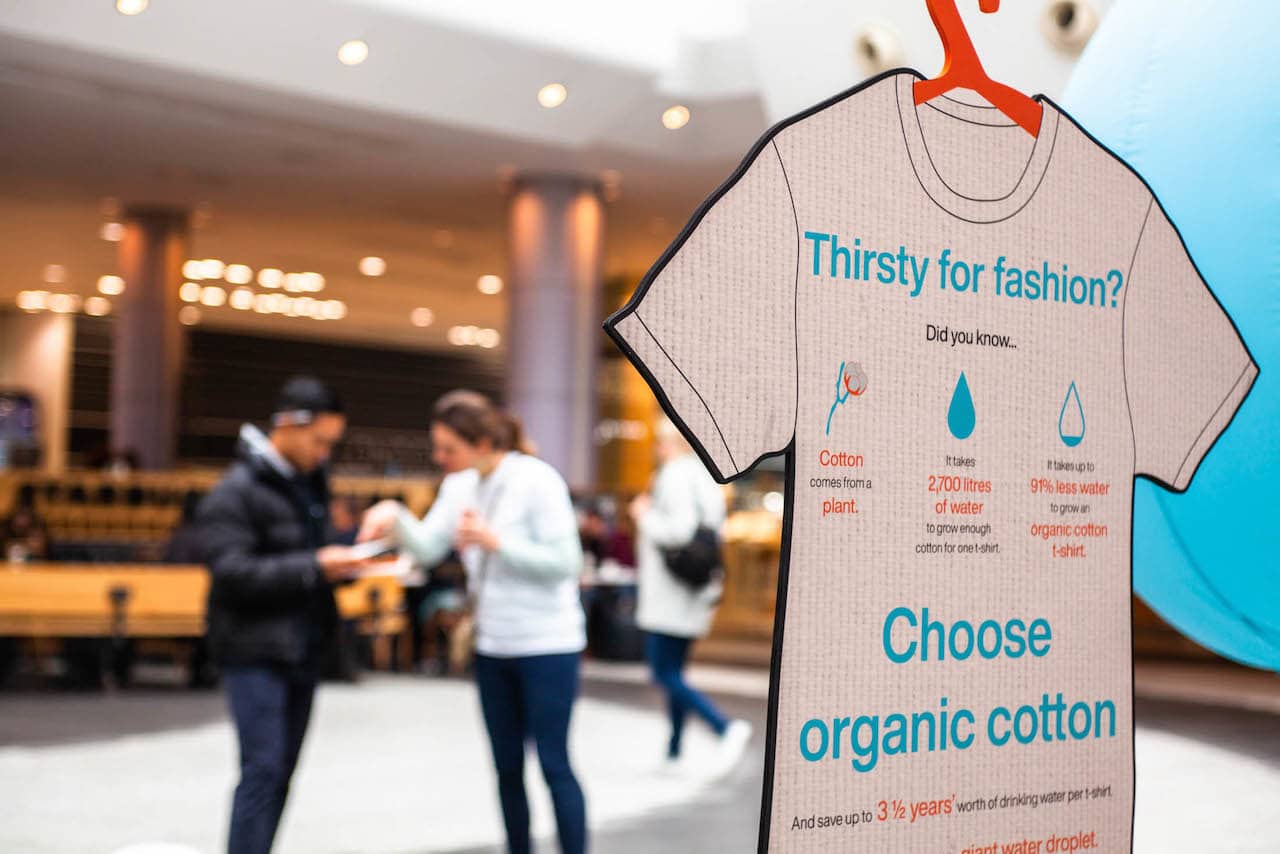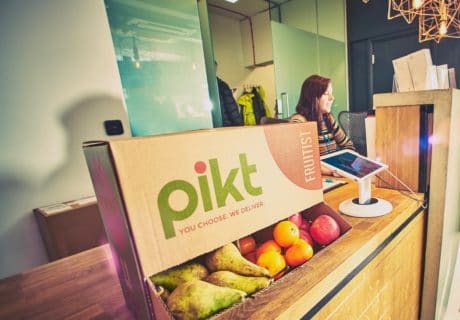Soil Association Certification is launching a new campaign, run in partnership with environmental charity Hubbub, to raise awareness of the positive impact organic cotton has on people and the planet.
To launch the initiative, a public water installation will be unveiled at Westfield London, Shepherd’s Bush, on the 3-4 October in a bid to encourage shoppers to help make a positive impact on the environment by choosing organic cotton when they shop and call on retailers to stock more organic in their ranges.
The 3.5m installation will feature a giant water droplet of about 2,457 litres, representing the volume of water that is saved in growing the cotton for a single organic cotton T-shirt, compared to a non-organic cotton one. The water saved is enough for one person to drink eight glasses of water a day for three-and-a-half years. Given conventionally grown cotton is in 40% of global textiles, and only 19% of cotton is currently classed as sustainable, the potential for change is dramatic.
Hopefully we can engage shoppers with the benefits of choosing organic and show retailers that there is a real demand for clothing options that reduce the impact of the fashion industry as the organic textiles market continues to grow
Clare McDermott, Business Development Director, Soil Association Certification said: “Our activation at Westfield London is a light-hearted way of doing something serious. Hopefully we can engage shoppers with the benefits of choosing organic and show retailers that there is a real demand for clothing options that reduce the impact of the fashion industry as the organic textiles market continues to grow.”
“The call for a more sustainable fashion industry has never been louder and encouraging people to make easy switches when they do buy something new, like to organic cotton, can make a real difference,” adds Sarah Divall from Hubbub. “Hubbub is committed to making the fashion industry better for the planet and making it easier for shoppers to make the right choices. This installation is a great way to show brands and customers at Westfield what they can do to make their stores and wardrobes more sustainable.”
This month the Soil Association will publish a policy report – Thirsty for fashion? How organic cotton delivers in a water-stressed world – which examines the ‘catastrophic and far-reaching’ impacts of growing and manufacturing non-organic cotton by drawing together years of research that shows the huge environmental, social and health benefits of organic cotton growing and processing.
Some of the stark figures include:
- Growing cotton accounts for 69% of the water footprint of textile fibre production, where 1kg of cotton takes as much as 10,000-20,000 litres of water to produce. In contrast, organic cotton reduces water consumption by as much as 91%
- Around 20% of all global water pollution results from the dyeing and finishing of textiles
- Cotton production uses 2.5% of the world’s cultivated land, but accounts for 16% of all pesticides used globally
- It is estimated that non-organic cotton production requires 200,000 tonnes of pesticides and eight million tonnes of synthetic fertilisers every year. If all farming was organic, research suggests that pesticide use would fall by 98%.
To seize the momentum around organic textiles, Soil Association Certification is hosting an event on 30 September with speakers from Arcadia group and attendees from across the industry.


